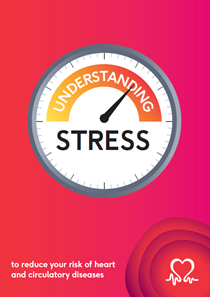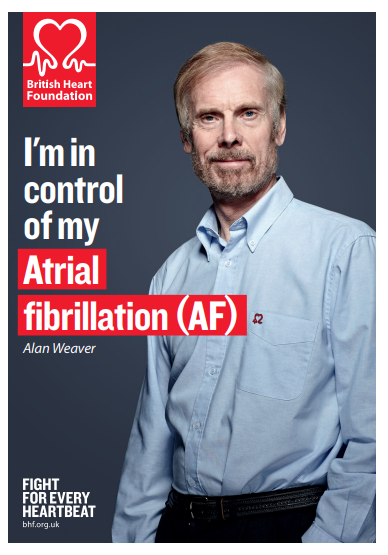Living with Atrial Fibrillation
- 0About this program
- 1Welcome to Living with Atrial Fibrillation
- 2What is Atrial Fibrillation or `AF`?
- 3Causes, symptoms and tests
- 4Understanding the risks
- 5Treatments for Atrial fibrillation (AF)
- 6Supporting you through treatments
- 7Living well with Atrial Fibrillation
- 8Looking after yourself with AF
- 9Changes in your condition
- 10Continuing support
- 0About this program
- 1Welcome to Living with Atrial Fibrillation
- 2What is Atrial Fibrillation or `AF`?
- 3Causes, symptoms and tests
- 4Understanding the risks
- 5Treatments for Atrial fibrillation (AF)
- 6Supporting you through treatments
- 7Living well with Atrial Fibrillation
- 8Looking after yourself with AF
- 9Changes in your condition
- 10Continuing support
Content on HealthUnlocked does not replace the relationship between you and doctors or other healthcare professionals nor the advice you receive from them.
Never delay seeking advice or dialling emergency services because of something that you have read on HealthUnlocked.
Looking after yourself with AF

This part of the journey covers building your support network, looking after your mental health and dealing with stress and life challenges.
Building a support network
Discussing your health with the people in your life isn’t always the easiest thing but it’s important to have people around to support you. These relationships can help you stay well and enjoy life as they’ll provide encouragement, positivity and a sympathetic ear when you need to talk. Look into who could support you and reach out.
Find out what medical support is available at your place of work, such as help with a phased return to work, as well as support from occupation health teams and human resource teams.
If you’re a carer, it’s important to look after yourself so that you can look after your loved one to the best of your ability. See if other family members or friends can support you when you’re not feeling your best. You may be entitled to extra support such as respite – ask to speak to the hospital social worker or talk to your GP.
Some people find that their friends don’t want to talk about their diagnosis. Get some friends together to do something positive, whether it’s a walk in the park or meeting for a meal. This will help include and educate them about your condition.
Find your nearest Heart Support Group
Travelling with AF
As long as you feel well enough, short trips shouldn’t be a problem with AF. If you’re travelling for a longer period or time or changing time zone, there are some things to be aware of.
Speak to your doctor or pharmacist about timing your anticoagulants so they remain effective.
Always make sure you have travel insurance and that they’re aware of your condition. If they don’t know you have AF, you could find your cover is invalid.
Look up the nearest hospital and emergency numbers in the place you’re travelling to before you go in case you have any concerns.
Try not to overload your itinerary so that you have time to rest. Travelling can be tiring and you may find it makes any AF-related fatigue more noticeable.
Top tips for living with AF
Hear from Kim to find out his advice on managing the condition and its symptoms.
Top tips for living with AF
Dealing with stress
You may have moments of feeling more stressed, alone or overwhelmed than you did before your diagnosis. There are small changes and tips in our Understanding Stress leaflet that can make stressful moments more manageable.

Supporting your mental health
Whether you’ve been living with a mental health condition before your diagnosis or one has developed since your diagnosis, there are steps you can take to look after yourself.
Resources and advice are available through the NHS, your local council or charities such as Mind.
Our Heart Helpline
Our Heart Helpline is open Monday to Friday, 9am – 5pm. You can speak to a fully qualified Cardiac Nurse who can advise you on how to take medications, recovering after a hospital stay, making healthy lifestyle changes or understanding test results or a diagnosis.
Call on 0300 330 3311 or email us.
Download your AF guide
Our booklet tells you more about diagnosis, treatments and living with AF.

Download or order our AF booklet
Next: Condition changes
What we will cover next:
- New AF symptoms to look out for and what to do if you experience them.
- Top tips for speaking to your HCP and be a confident patient.
- Dealing with ongoing tests.
Content on HealthUnlocked does not replace the relationship between you and doctors or other healthcare professionals nor the advice you receive from them.
Never delay seeking advice or dialling emergency services because of something that you have read on HealthUnlocked.